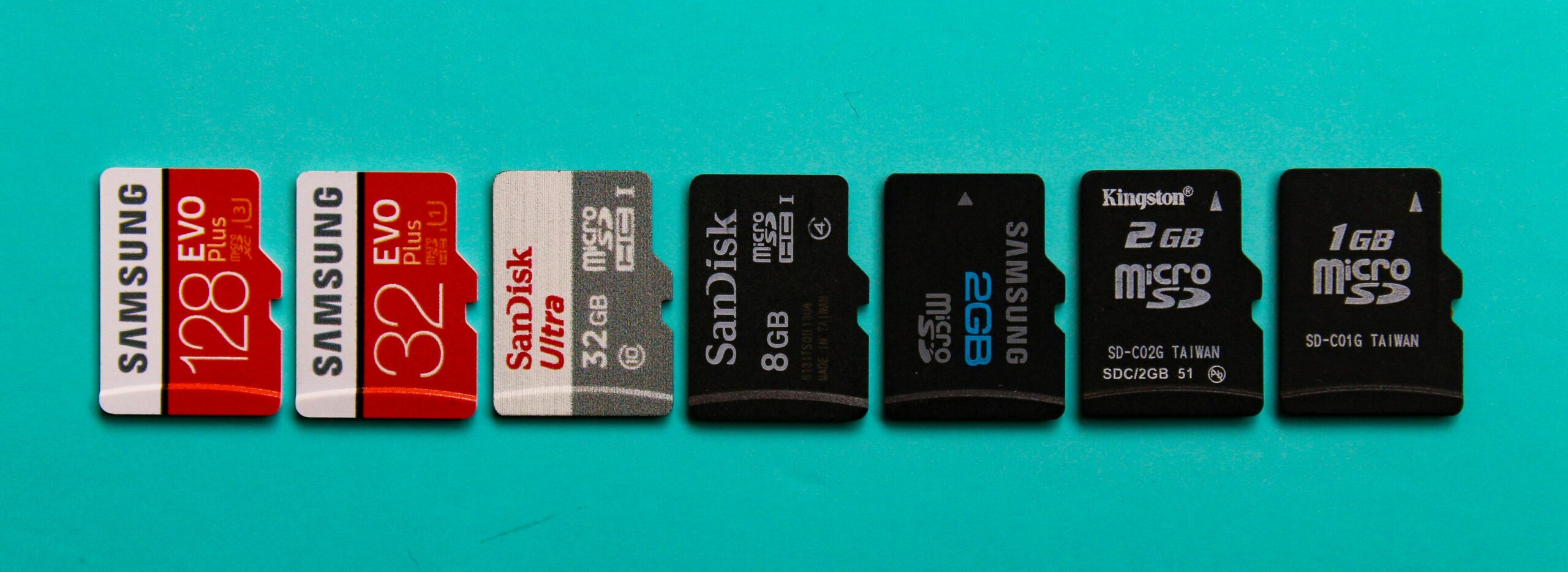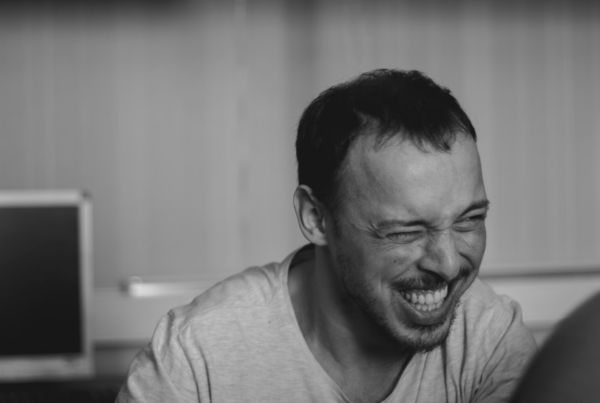
Memory – one of the most complex and elusive mysteries of science. The quest to understand its limits and potentials has captivated academics for decades, leading to fascinating and strange discoveries of the human mind and how it is transformed by memories.
Memory – one of the most complex and elusive mysteries of science. The quest to understand its limits and potentials has captivated academics for decades, leading to fascinating and strange discoveries of the human mind and how it is transformed by memories.

Photo by Supratik Deshmukh on Unsplash

Photo by Supratik Deshmukh on Unsplash
The first well-documented case of extraordinary memory was that of Solomon Shereshevskii, a man with such a prodigious memory that he struggled to forget anything unless he made a mighty effort. His memory was not a mere repository of facts; rather, it was a relentless flood of information that he could not control. Studied extensively by the celebrated Russian psychologist Alexander Luria over three decades, his story was reported in The Mind of a Mnemonist (1968), where Luria confessed his inability to find a limit to Shereshevskii’s memory.
More recently in 2006, neurobiologist James McGaugh reported the case of Jill Price, a young woman who possesses an extraordinary ability to recall detailed autobiographical events without effort. McGaugh coined the term hyperthymesia, or Highly Superior Autobiographical Memory (HSAM). When a hyperthymesiac encounters a date, vivid memories of that day flood and swamp their head without hesitation or effort. This memory is not a result of memorising strategies; it is encoded involuntarily and retrieved automatically.
“While perfect memory may intuitively seem like an enviable gift, it can be quite an overwhelming burden.”
At first glance this ‘talent’ may seem appealing and quite wonderful. Being able to recall “every painting, on every wall, in every gallery space, between nearly 40 countries,” as one person with HSAM puts it, seems like an enriching and useful experience. However, one might reconsider this appraisal. Jill Price detailed her story in a book, The Woman Who Can’t Forget. She finds the constant, irrepressible stream of memories ‘totally exhausting.’ Describing how it causes significant disruption to her life, she writes: “Whenever I see a date flash on the television, […] I automatically go back to that day and remember where I was, what I was doing, what day it fell on. […] I run my entire life through my head every day and it drives me crazy!!!” Her experience underscores a crucial point: while perfect memory may intuitively seem like an enviable gift, it can be quite an overwhelming burden.
A fantastically precise reflection of this phenomenon can be found in a story written several decades before the first HSAM diagnosis was even made. The great Argentinian writer Jorge Luis Borges had imagined what ‘infallible perception and memory’ would be like in his short story Funes the Memorious, which tells the tale of Ireneo Funes, who, after suffering a brain injury, lost the ability to forget. His mind became an exhaustive warehouse. He knew by heart and in precise detail the shape of the southern clouds at dawn on 30th April 1982, and he could compare them in his memory to the shape of the foam raised by an oar in a specific river on another specific night. Recalling an entire day would take Funes another entire day – because he remembered every single thing: “A circle or triangle drawn on a blackboard are forms we can fully and intuitively grasp; Funes could do the same with the stormy mane of a pony, and with the changing fire and its innumerable ashes.”
Yet, just as with HSAM, this remarkable ability came at a higher cost. Funes became incapacitated by the sheer volume of his memories. Every new experience filled his mind with more details, leaving little room for coherent thought. Borges’ portrayal of Funes prompts reflection on the nature of memory itself – William James once posited that remembering everything would leave us ‘as ill off as if we remembered nothing,’ because forgetting is essential for cognitive function.
“It isn't just about retaining what’s significant. Far more important is being able to forget the rest.”
In line with prediction, Funes’ inability to forget renders him incapable of such cognitive function and ‘not very capable of thought.’ Borges, like James, believes that ‘to think is to forget differences, generalise, make abstractions. In the teeming world of Funes, there were only details.’ Because Funes can distinguish every physical object at every distinct time of viewing, he has no need of generalisation (or detail-suppression), which is an ability on which both induction and deduction rely. Not only the fictional Funes, but also the real people with HSAM face similar challenges. Luria reports that Shereshevskii ‘was quite inept at logical organisation.’ McGaugh described how Jill Price had ‘cognitive deficits in executive functioning.’ These examples illustrate that memory, when too perfect, brings about a paradoxical limitation. Forgetting plays a crucial role in organising information, allowing for the mental space needed to draw connections between ideas, classify concepts, and derive meaning from experience. The challenge posed by perfect memory is not one of remembering, but of navigating the overwhelming flood of information in a way that supports coherent thought and reasoning.
Both neuropsychological cases and literary explorations have led us to re-evaluate what is meant by “healthy” memory – less is more. Useful and appealing as it sounds to have ‘perfect memory’, we’d lose access to the kind of information that’s important because we’d be consumed by the kind that’s trivial. Perhaps that’s why Funes called his memory ‘a garbage heap.’ It isn’t just about retaining what’s significant. Far more important is being able to forget the rest. <<
References
-
ABC News. (2008, May 8). Book excerpt: ‘The woman who can’t forget’. https://abcnews.go.com/GMA/Books/story?id=4815520&page=1
-
Borges, J. (2002). Funes, the Memorious. In G. Nouzeilles, G. Montaldo, R. Kirk & O. Starn (Ed.), The Argentina Reader: History, Culture, Politics (pp. 306-312). New York, USA: Duke University Press. https://doi.org/10.1515/9780822384182-045
-
Hyperthymesia. (2024, September 1). Wikipedia, the free encyclopedia. Retrieved September 1, 2024, from https://en.wikipedia.org/wiki/Hyperthymesia
-
Morris, S. Y. (n.d.). Hyperthymesia (HSAM): What is it? Healthline. https://www.healthline.com/health/hyperthymesia
-
Nast, C. (2017, August 12). The mystery of S., the man with an impossible memory. The New Yorker. https://www.newyorker.com/books/page-turner/the-mystery-of-s-the-man-with-an-impossible-memory
-
Solomon Shereshevsky. (2024, August 5). Wikipedia, the free encyclopedia. Retrieved September 1, 2024, from https://en.wikipedia.org/wiki/Solomon_Shereshevsky
-
Total recall: The people who never forget. (2017, February 8). the Guardian. https://www.theguardian.com/science/2017/feb/08/total-recall-the-people-who-never-forget
The first well-documented case of extraordinary memory was that of Solomon Shereshevskii, a man with such a prodigious memory that he struggled to forget anything unless he made a mighty effort. His memory was not a mere repository of facts; rather, it was a relentless flood of information that he could not control. Studied extensively by the celebrated Russian psychologist Alexander Luria over three decades, his story was reported in The Mind of a Mnemonist (1968), where Luria confessed his inability to find a limit to Shereshevskii’s memory.
More recently in 2006, neurobiologist James McGaugh reported the case of Jill Price, a young woman who possesses an extraordinary ability to recall detailed autobiographical events without effort. McGaugh coined the term hyperthymesia, or Highly Superior Autobiographical Memory (HSAM). When a hyperthymesiac encounters a date, vivid memories of that day flood and swamp their head without hesitation or effort. This memory is not a result of memorising strategies; it is encoded involuntarily and retrieved automatically.
“While perfect memory may intuitively seem like an enviable gift, it can be quite an overwhelming burden.”
At first glance this ‘talent’ may seem appealing and quite wonderful. Being able to recall “every painting, on every wall, in every gallery space, between nearly 40 countries,” as one person with HSAM puts it, seems like an enriching and useful experience. However, one might reconsider this appraisal. Jill Price detailed her story in a book, The Woman Who Can’t Forget. She finds the constant, irrepressible stream of memories ‘totally exhausting.’ Describing how it causes significant disruption to her life, she writes: “Whenever I see a date flash on the television, […] I automatically go back to that day and remember where I was, what I was doing, what day it fell on. […] I run my entire life through my head every day and it drives me crazy!!!” Her experience underscores a crucial point: while perfect memory may intuitively seem like an enviable gift, it can be quite an overwhelming burden.
A fantastically precise reflection of this phenomenon can be found in a story written several decades before the first HSAM diagnosis was even made. The great Argentinian writer Jorge Luis Borges had imagined what ‘infallible perception and memory’ would be like in his short story Funes the Memorious, which tells the tale of Ireneo Funes, who, after suffering a brain injury, lost the ability to forget. His mind became an exhaustive warehouse. He knew by heart and in precise detail the shape of the southern clouds at dawn on 30th April 1982, and he could compare them in his memory to the shape of the foam raised by an oar in a specific river on another specific night. Recalling an entire day would take Funes another entire day – because he remembered every single thing: “A circle or triangle drawn on a blackboard are forms we can fully and intuitively grasp; Funes could do the same with the stormy mane of a pony, and with the changing fire and its innumerable ashes.”
Yet, just as with HSAM, this remarkable ability came at a higher cost. Funes became incapacitated by the sheer volume of his memories. Every new experience filled his mind with more details, leaving little room for coherent thought. Borges’ portrayal of Funes prompts reflection on the nature of memory itself – William James once posited that remembering everything would leave us ‘as ill off as if we remembered nothing,’ because forgetting is essential for cognitive function.
“It isn't just about retaining what’s significant. Far more important is being able to forget the rest.”
In line with prediction, Funes’ inability to forget renders him incapable of such cognitive function and ‘not very capable of thought.’ Borges, like James, believes that ‘to think is to forget differences, generalise, make abstractions. In the teeming world of Funes, there were only details.’ Because Funes can distinguish every physical object at every distinct time of viewing, he has no need of generalisation (or detail-suppression), which is an ability on which both induction and deduction rely. Not only the fictional Funes, but also the real people with HSAM face similar challenges. Luria reports that Shereshevskii ‘was quite inept at logical organisation.’ McGaugh described how Jill Price had ‘cognitive deficits in executive functioning.’ These examples illustrate that memory, when too perfect, brings about a paradoxical limitation. Forgetting plays a crucial role in organising information, allowing for the mental space needed to draw connections between ideas, classify concepts, and derive meaning from experience. The challenge posed by perfect memory is not one of remembering, but of navigating the overwhelming flood of information in a way that supports coherent thought and reasoning.
Both neuropsychological cases and literary explorations have led us to re-evaluate what is meant by “healthy” memory – less is more. Useful and appealing as it sounds to have ‘perfect memory’, we’d lose access to the kind of information that’s important because we’d be consumed by the kind that’s trivial. Perhaps that’s why Funes called his memory ‘a garbage heap.’ It isn’t just about retaining what’s significant. Far more important is being able to forget the rest. <<
References
-
ABC News. (2008, May 8). Book excerpt: ‘The woman who can’t forget’. https://abcnews.go.com/GMA/Books/story?id=4815520&page=1
-
Borges, J. (2002). Funes, the Memorious. In G. Nouzeilles, G. Montaldo, R. Kirk & O. Starn (Ed.), The Argentina Reader: History, Culture, Politics (pp. 306-312). New York, USA: Duke University Press. https://doi.org/10.1515/9780822384182-045
-
Hyperthymesia. (2024, September 1). Wikipedia, the free encyclopedia. Retrieved September 1, 2024, from https://en.wikipedia.org/wiki/Hyperthymesia
-
Morris, S. Y. (n.d.). Hyperthymesia (HSAM): What is it? Healthline. https://www.healthline.com/health/hyperthymesia
-
Nast, C. (2017, August 12). The mystery of S., the man with an impossible memory. The New Yorker. https://www.newyorker.com/books/page-turner/the-mystery-of-s-the-man-with-an-impossible-memory
-
Solomon Shereshevsky. (2024, August 5). Wikipedia, the free encyclopedia. Retrieved September 1, 2024, from https://en.wikipedia.org/wiki/Solomon_Shereshevsky
-
Total recall: The people who never forget. (2017, February 8). the Guardian. https://www.theguardian.com/science/2017/feb/08/total-recall-the-people-who-never-forget



